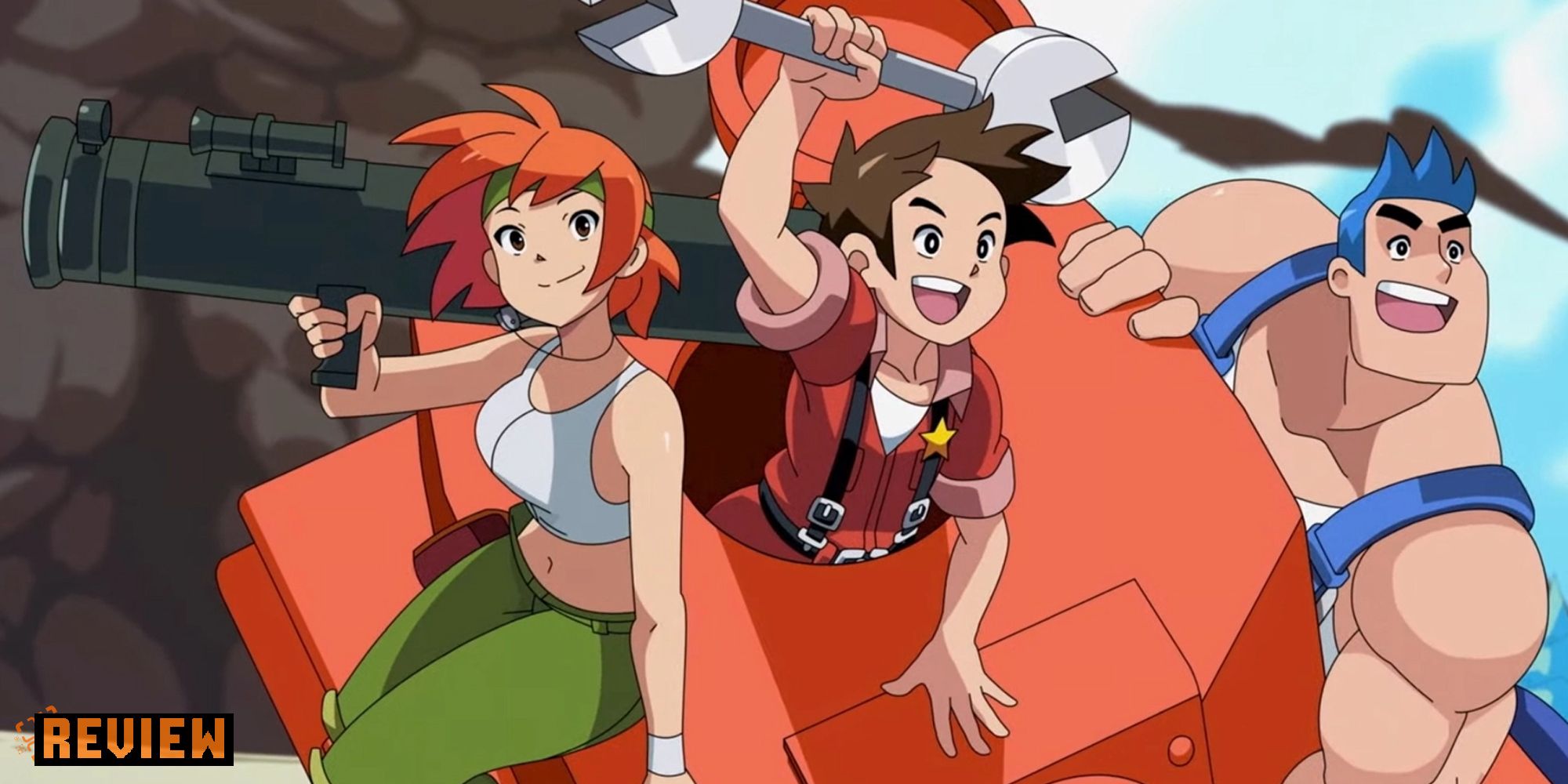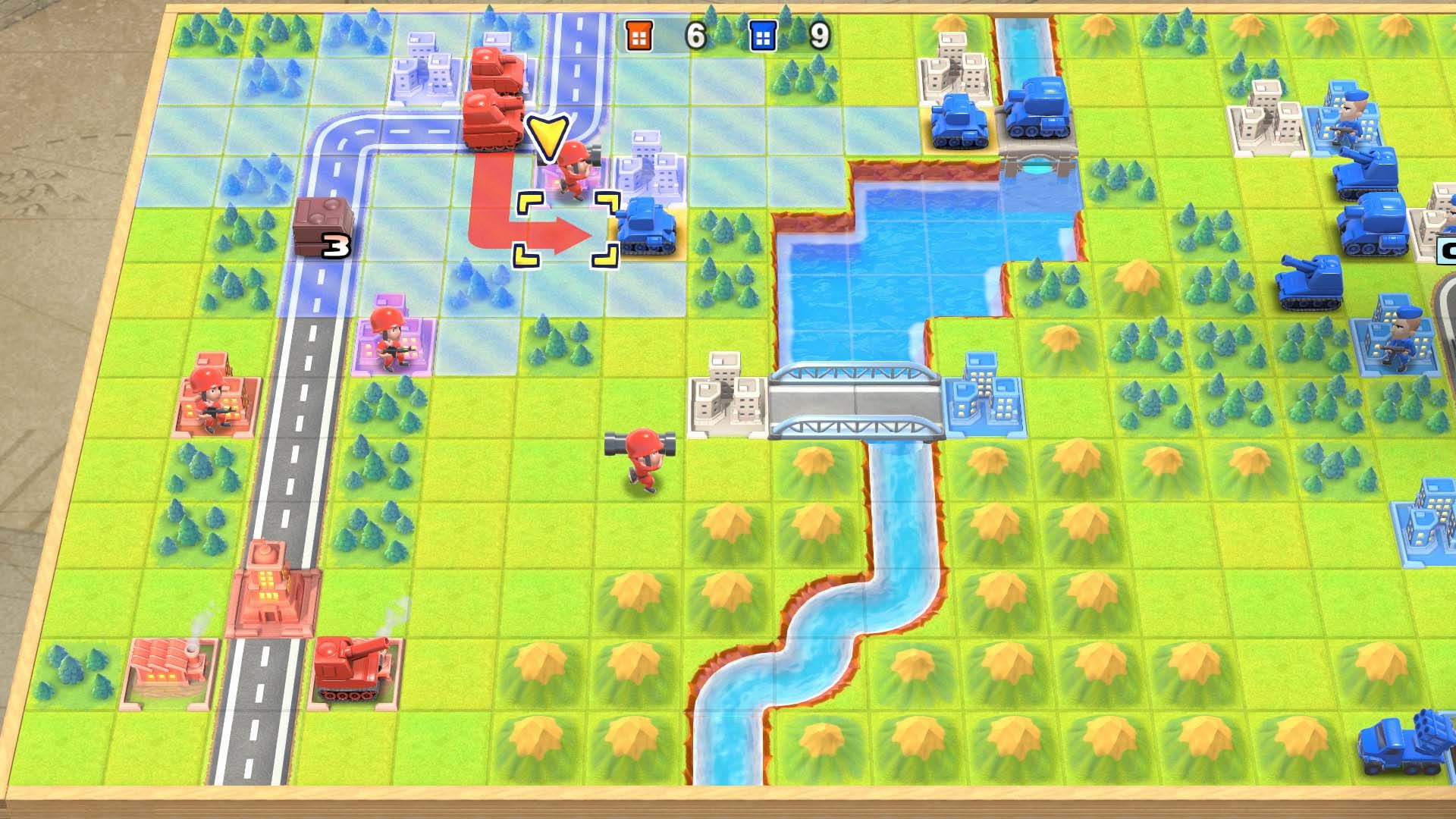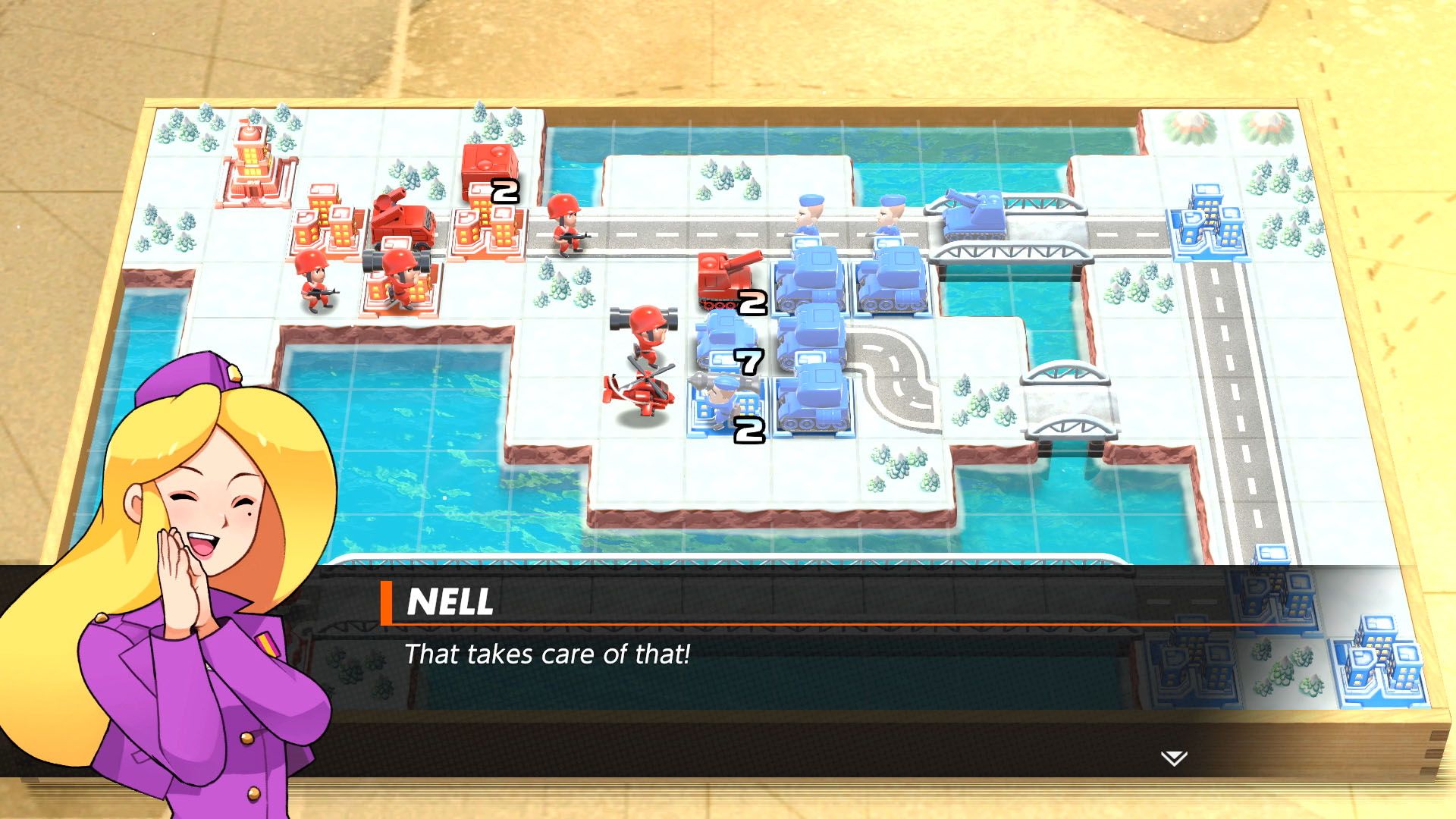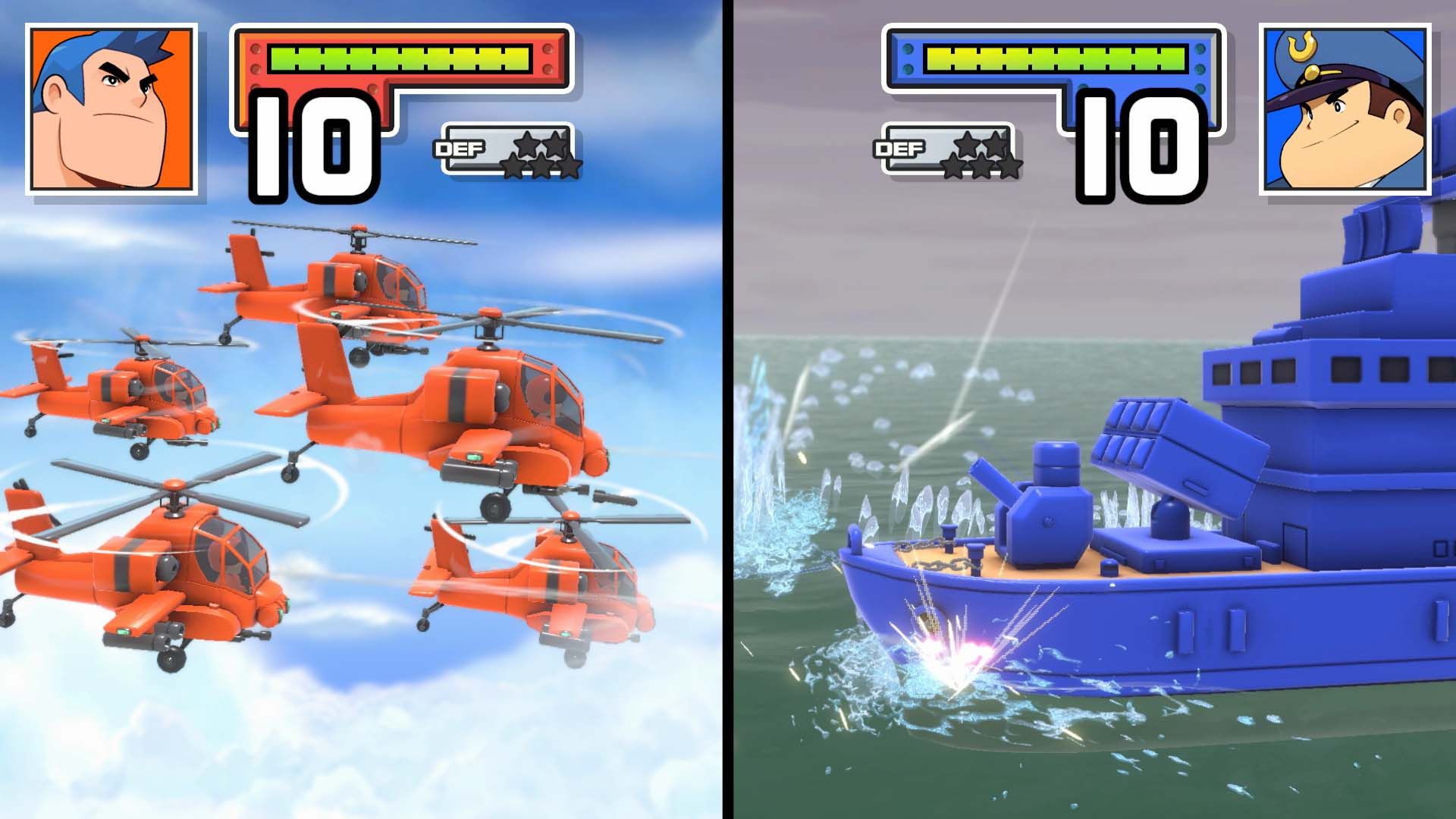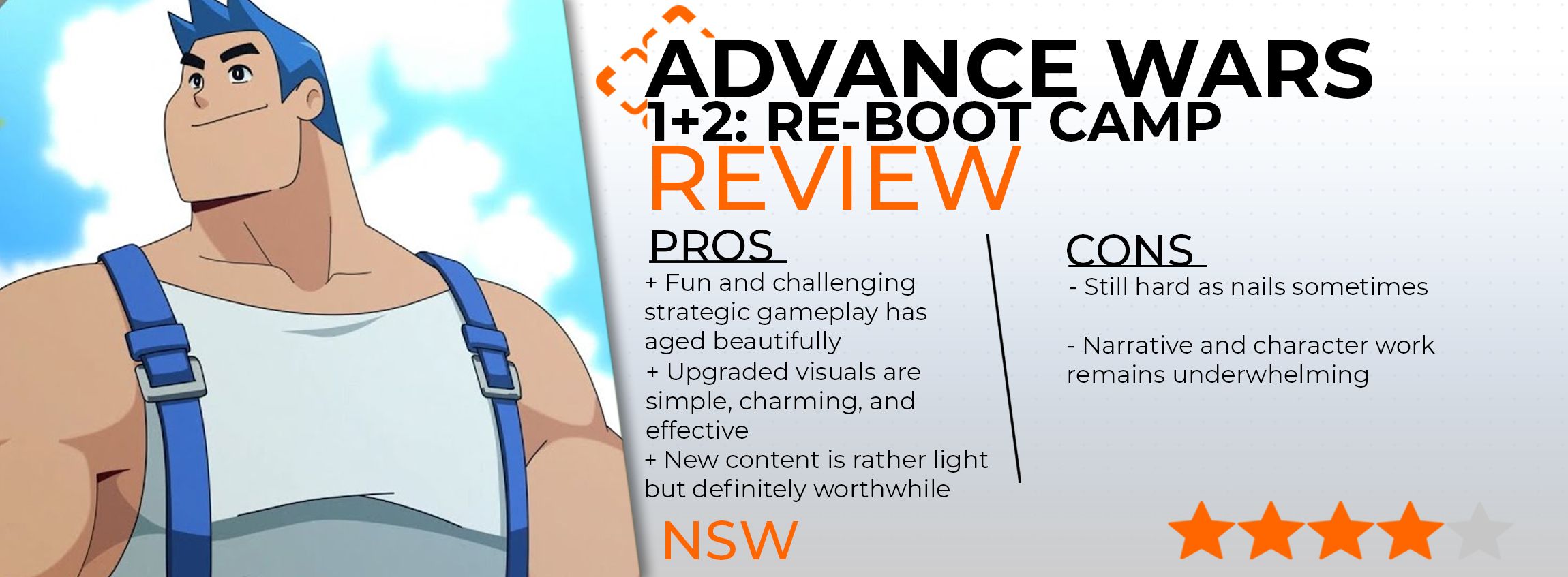Advance Wars is a perfect fit for the Nintendo Switch, and it’s hard to believe it has taken the series this long to make the jump. Obviously it couldn’t have predicted Russia invading Ukraine, but even without that context the franchise has been on ice for decades.
From the minds behind Fire Emblem comes a fast-paced RTS where you command a range of infantry, vehicles, aircraft, and special units all helmed by a Commanding Officer with their own unique ultimate ability. The birds-eye view perspective gives you a comprehensive look at the battlefield as you’re expected to make several decisions ahead of time or risk a hasty defeat. The Orange Star Army might consist of a bunch of smiling cuties, but this sharp anime aesthetic hides a deceptively punishing tactics game that’s quite hard to put down.
Aside from visual enhancements and a handful of mechanical changes, Re-Boot Camp isn’t interested in changing much from the original two games. As I mentioned in my hands-on preview, the package consists of the first two releases updated with better visuals and a few worthwhile bonuses that bring these two explosive strategy classics into the modern era.
WayForward takes the lead on this remaster effort, and the animated charm of games like Shantae shines through the expressive animation and exuberant personalities of each new character. Advance Wars has always sported a winning personality, but never has it felt this complete. It’s a shame that the narrative is still lacking, only ever rearing its head to introduce new faces and push the campaign into new territories.
I personally would have loved to see the franchise receive a treatment similar to Fire Emblem. Imagine retiring to your barracks after each fight to strike up conversations with your allies. It would allow their personalities to feel more than dated archetypes defined by special moves and old designs. Boot Camp is faithful to a fault at points because of this.
The two games included here have largely similar campaigns with largely similar mechanics and modes of progression that seldom venture off the beaten path. You can craft units while on the battlefield by taking over specific structures, but the impetus is on using precise units for each situation instead of experimenting beyond your own means. Do so and you’ll likely get your butt kicked as your Commanding Officer offers a handy hint or twelve on how you should best approach things. I love how each level became a complicated riddle for me to solve, but the lack of customisation from more contemporary strategy games is missed.
It’s still incredibly engaging though, and few feelings can match the satisfaction earned by beating a stage that once felt impossible, or figuring out the perfect strategy to thwart the enemy’s advantage before emerging victorious. Covering your weak points and defending chokepoints like bridges is of utmost importance, and I usually popped down a few cheeky submarines to ensure nobody got the jump on me. They usually still would, but I felt cool and that’s what matters. I’d enter a level to get utterly annihilated, and come back after licking my wounds with a winning combo of moves and units. You’ll reach a point where features you once ignored like Commanding Officer abilities and environmental effects prove invaluable.
You’ll unlock additional COs across each campaign and learn more about them while moving through a map filled with countries suspiciously similar to our own world, but the driving focus is on strategy over world building, so those after a more laid-back experience may not gel with Advance Wars. I played on Casual difficulty and still got a pasting, often forced to go through levels again and again until I figured things out. Maybe I’m just rubbish at video games. As someone who loves similar strategy games for their mixture of epic battles and touching narratives though, there is something missing here after two decades away.
The in-game shop is packed with goodies ranging from commanders to play as and map pieces used for creating your own stages to share online with friends. It works rather well, immediately reminding me of similar games like Super Mario Maker in how environments and units slot into place with little effort. You’ll want to show some restraint though, because throwing random nonsense onto the field and calling it a day won’t result in a level which is all that fun to play. Elsewhere, you can battle AI in pursuit of high scores and a valuable bit of practice. None of these new additions change the world, but all feel modernised in a way that transforms the franchise from a portable darling to one that feels at home on the Switch.
Advance Wars 1+2: Re-Boot Camp marks the return of two classic strategy games, and WayForward has done a stellar job bringing them back to life while never sacrificing the formidable challenge and anime-esque charm of fictional warfare the series has always nailed. While some of the new features are lightweight and the addition of flourishes like voice acting and level creation will prove meaningless to certain folks, this remaster still supplies a solid foundation I pray Nintendo isn’t afraid to build on. Few in the genre can compete with the immediate simplicity and approachability of Advance Wars, but Nintendo needs to take it further.
Advance Wars 1+2: Re-Boot Camp

